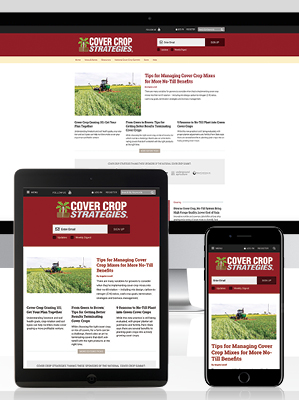As attention on water quality, sustainability, farm income levels, and rural quality of life grows every year, those of us who work in the soil and water conservation arena often wonder what will be required to get the majority of landowners to adopt even the most basic soil health practices. We live in the most altered landscape in the United States, we have nearly the smallest amount of forests and public lands of any state, and we have only half of the topsoil we had in the 1860s. Read more in this article from the Globe Gazette (Mason City, IA).
Read More




